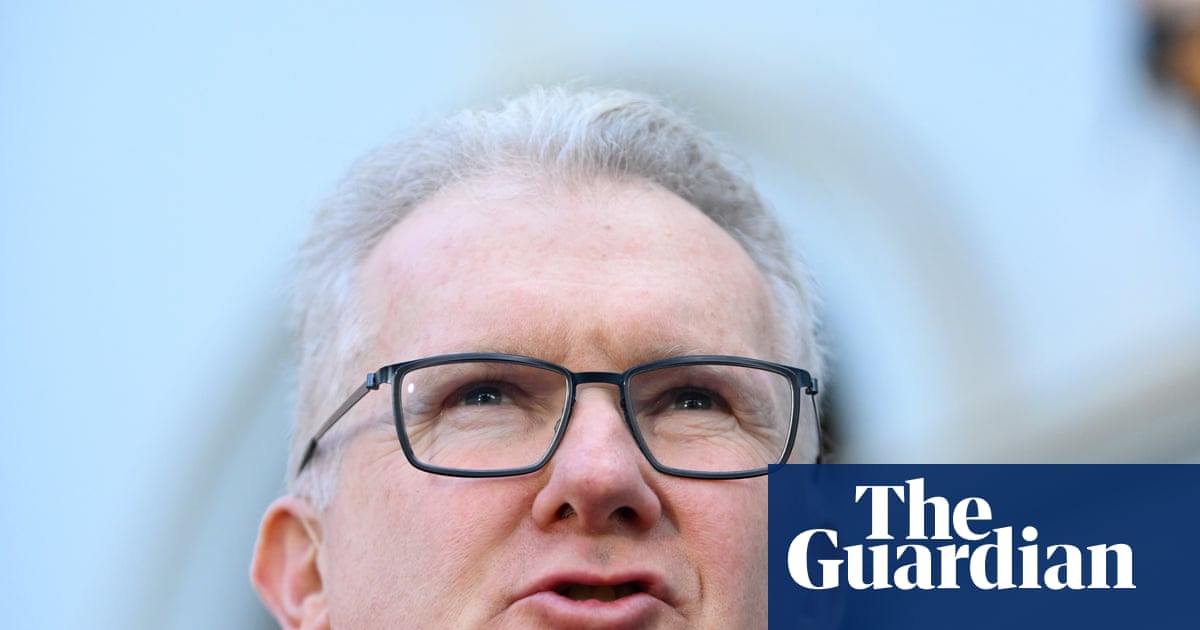The Albanese government has rejected Benjamin Netanyahu’s incendiary criticism and accused some Israeli politicians of “bigoted” views about Palestinians, as the extraordinary political fight between the two nations turns uglier.
Home affairs minister Tony Burke – whose refusal of a travel visa for Knesset member Simcha Rothman stoked further criticism from Jerusalem – backed in his decision and further criticised Israeli prime minister Netanyahu over the war in Gaza, where tens of thousands of Palestinian civilians have been killed in Israel’s military and bombing campaign.
“Strength is not measured by how many people you can blow up or how many children you can leave hungry,” Burke told Radio National on Wednesday.
“Strength is much better measured by exactly what prime minister Anthony Albanese has done, which is when there’s a decision that we know Israel won’t like, he goes straight to Benjamin Netanyahu.”
Burke’s comments came the morning after Netanyahu escalated the standoff with Australia and condemned Australia’s government directly via social media. On X, Netanyahu’s office wrote, “History will remember Albanese for what he is: A weak politician who betrayed Israel and abandoned Australia’s Jews”.
Netanyahu also wrote a letter to the Albanese on Monday, accusing the prime minister of pouring “fuel on this antisemitic fire”, and condemning Australia’s recognition of Palestine – which he called “appeasement”. The letter was shared on social media by the Australian Jewish Association, a right-leaning group who had organised Rothman’s planned speaking tour.
Netanyahu’s letter claimed there was “Jew-hatred now stalking [Australian] streets”.
It was a major ratcheting up of tensions between the two countries, following a tit-for-tat sparked by Australia’s pledge to recognise a Palestinian state. Burke’s department this week cancelled a visa for far-right Israeli politician Simcha Rothman, over his past comments calling Gazan children the “enemies” of Israel. Israel then revoked the visas of Australian representatives to the Palestinian Authority.
Burke confirmed to ABC radio that the decision to cancel Rothman’s visa was over his comments about Gazan children and for the protection of Palestinian and Muslim Australians, and not based on his calls for the destruction of Hamas, as has been alleged by some conservative media outlets.
“If anyone wanted to come on a public speech tour, and they had those views publicly expressed about Israeli children, I would block the visa,” Burke said.
“I am going to not have a lower bar for the protection of views that are bigoted views against the Palestinian people.”
Fellow government minister Clare O’Neil called Netanyahu’s comments “disappointing”.
“I think Benjamin Netanyahu is in a bit of a habit of making [such comments]. This type of diplomacy doesn’t work, and that’s why Australia doesn’t engage with it,” she said.
“Our prime minister does us very proud on a global stage. He does it by being respectful. He does it by holding a strong position for our country. We determine our national interest, and that is how we’re approaching the conflict in the Middle East.”
The opposition has accused the government of deteriorating the relationship with Israel, describing it as at an all-time low.
Shadow home affairs minister, Andrew Hastie, criticised Labor’s decision to revoke the visa, and said while he didn’t agree with all of Rothman’s views, the government should not have refused the visa of a member of the Knesset.
“I think the government’s failed to recognise what this cancellation would mean. This wasn’t just any old visa,” he told ABC radio.
Liberal backbencher Jane Hume called Burke’s comments “incendiary” and “outrageous”.
“You can understand why [Netanyahu] would feel betrayed by Australia and by Anthony Albanese,” she said.
